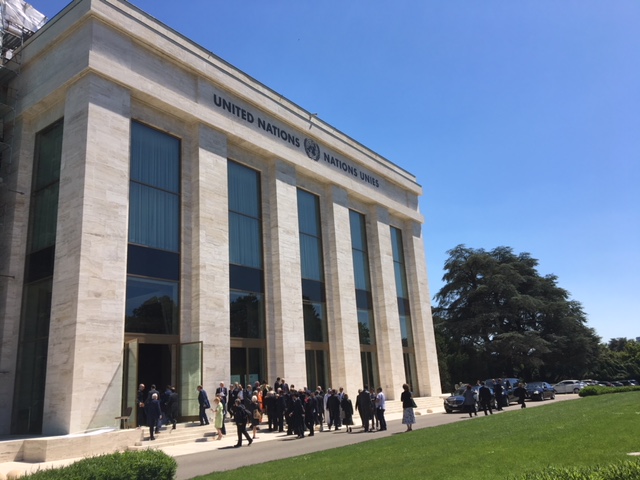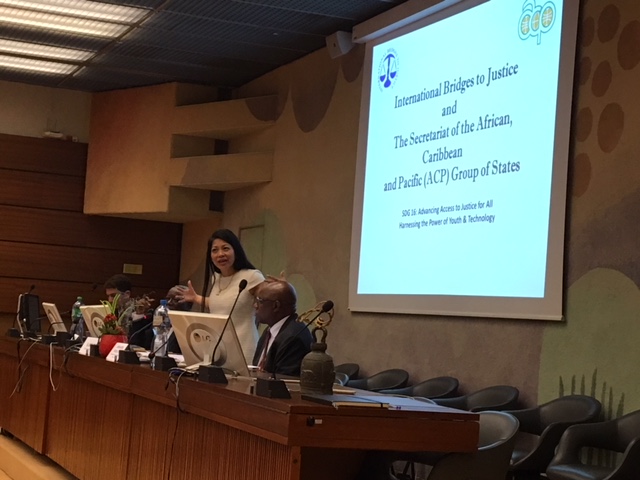Due Care
In Torts, the negligence standard is based on how a reasonable person exercising due care would act. As I grappled with a stressful housing situation in Geneva, I started thinking that the booking company’s actions could not possibly meet a standard of due care. Luckily, however, my friends, family, and coworkers do care.
“Due care” is, quite appropriately, a homophone. As is the case with all homophones, there are two possible meanings to the speaker’s statement. Context tells listeners which version of the homophone the speaker intends to use.
Based on the context, I could have interpreted my recent experience in Geneva one of two ways. I could have considered myself a victim of the booking company’s failure to exercise due care and concluded that working at an international NGO would not be a viable option after law school. NGO salaries typically do not enable people to rapidly refill their savings accounts, and, if I did not have a savings account during this housing fiasco, I would have had to burden my friends and family with requests to help bail me out of the dangerous situation in which I found myself.
Instead, I decided to focus on the fact that, even though working at an international NGO may entail a bit of financial insecurity, I likely would be surrounded by people who do care about others and are willing to mobilize their extensive networks to help me. In particular, my previous flatmate, Susie, and my coworker, Sammy, were very helpful in Geneva, and my family and friends were supportive from the States. Susie helped me move, both Sammy and Susie let me use their free international calling, and my U.S. support network offered words of encouragement from afar.
As I employed my networking, oral advocacy, and written advocacy skills to find myself new housing in a foreign city and get the booking company to refund me the money that it promised me, I realized that I could answer almost all of my own questions about the legality of the company’s actions and my avenues for relief. It was empowering to realize that I am a capable traveler and a pretty self-sufficient lawyer-in-training.
Furthermore, I was pleased to see that I could take care of my personal crisis while continuing to succeed at work. IBJ co-hosted an exciting event with the African, Caribbean, and Pacific Group of States at the United Nations (U.N.) on Monday. We discussed progress towards the U.N.'s Sustainable Development Goal 16 and strategies for engaging youth and technology to improve access to justice worldwide. I had the opportunity to help organize and facilitate the event and meet Swiss high school students, corporate philanthropists, non-profit executives, international lawyers, and U.N. Ambassadors. My conversation with one of the event’s prominent attendees went so well that he invited me to continue our discussion of sustainable impact bonds and public-private partnerships over lunch. Lunch was both fun and educational, and I am optimistic that this connection will blossom into an opportunity for IBJ to obtain new funding.
During our event, one of IBJ’s employees sent out an SOS message to her network and found me a room in a friend’s flat for a price that I could afford. My new human and canine flatmates are both lovely ladies, and I am so grateful to have a clean, safe, permanent (at least for the next 6 weeks) place to sleep.
I always thought that the Trump administration’s zero tolerance policy was unacceptable, but I have a new sense of empathy for the people who are being hurled into insecure, traumatic situations in a foreign country. Because I have a legal background and a financial safety net, was not worried about the safety of my family, was not being drugged or abused, and was free to move about the world as I chose, my situation is incomparable to the situation at the U.S.-Mexico border. However, I now have a better understanding of what it feels like to be housing-insecure, and it is awful.
After ending my conversation with the booking company well past midnight and feeling as though I was getting nowhere, I decided that I needed to do something to help the migrants' whose situations are far more stressful than my own. I also could not shake the discomfort that gripped me during IBJ’s U.N. event. I was offering insights about how to stop human rights violations in African and Southeast Asian countries while my own country drugged displaced children and locked asylum-seekers in cages. Consequently, I volunteered to do remote paralegal work for Southern Poverty Law Center’s Southeast Immigrant Freedom Initiative. While I wait to receive a response to my application, I would encourage you to join me in doing what you can to make a difference.
Even if you cannot work for an international NGO, there are abundant opportunities to help prevent and mitigate human rights abuses. Many are occurring within the United States as you read this blog post.
Regardless of where and for whom I work after graduation, I will devote a substantial portion of my time to battling human rights abuses worldwide because I do care about using my privilege to make a positive difference. If you do too, maybe we finally can raise the worldwide standard of due care.

